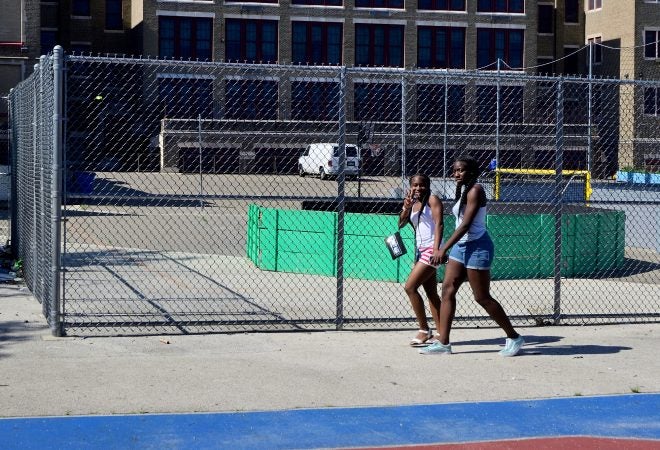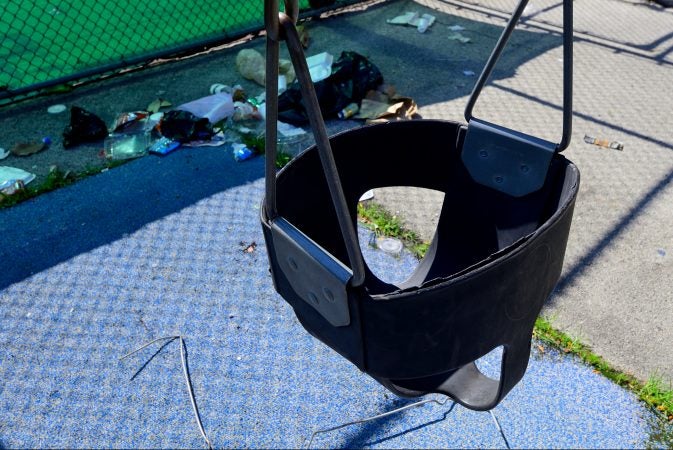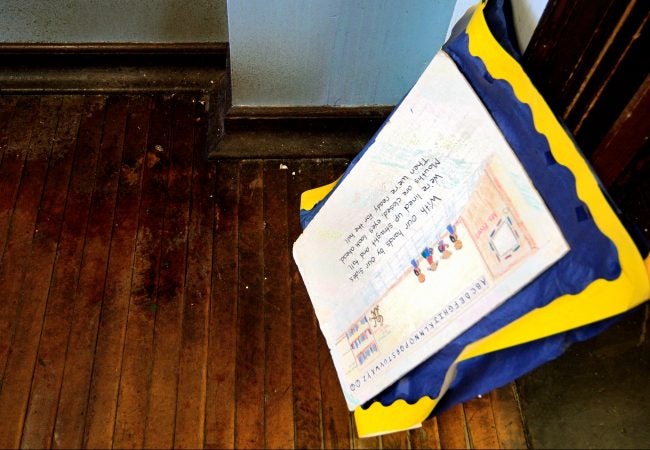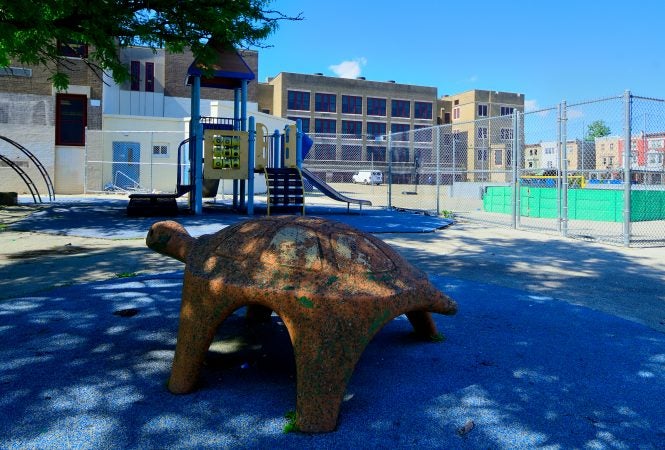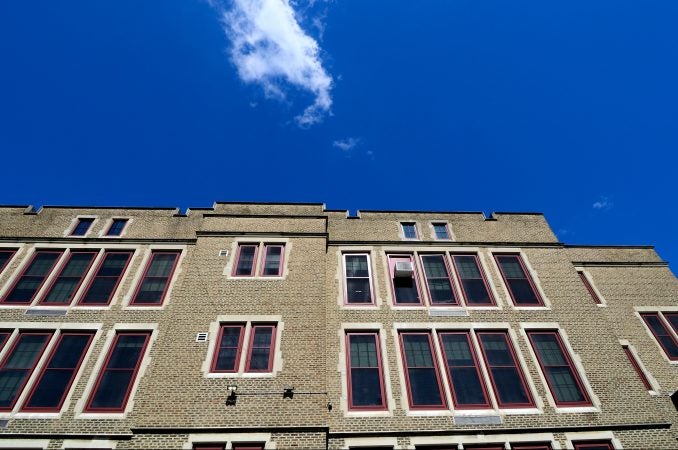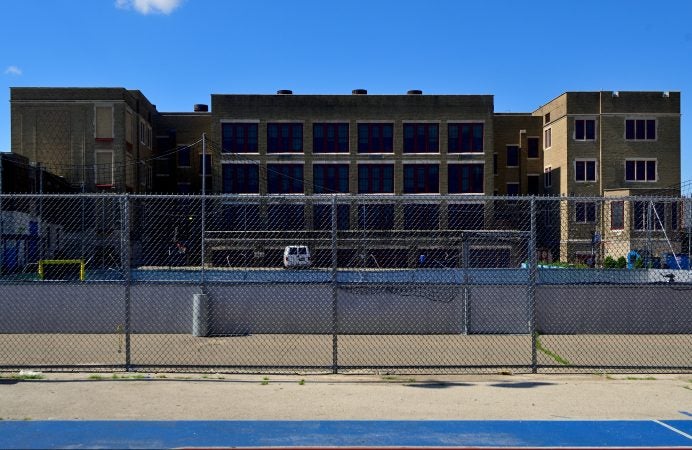Should Philly sell a neighborhood school to the charter company running it?
Belmont Charter wants to buy a building it already rents from the School District of Philadelphia. It would be an unprecedented move, if approved.
Listen 2:05
Detail of the current state of Belmont Charter School interior as maintenance work progresses to ready the facilities in the Belmont neighborhood for the new school year. (Bastiaan Slabbers for WHYY)
Belmont Charter School in West Philadelphia is at the center of a debate over public assets and whether they should ever pass into private hands.
Or maybe it’s just an old school with a leaky roof and a web of red tape.
Those competing views will be on display this week when the Philadelphia school board takes an unprecedented vote. The board will decide whether it should sell Belmont Elementary School to the charter organization that has run it since 2002.
If the board votes yes, Belmont would become the first Philadelphia neighborhood or catchment school owned by a private organization. By next year, some Philadelphia kids could be assigned to attend a school that the public no longer owns. The arrangement would further cement the school district’s relationship with the handful of charter operators that run some of its neighborhood schools.
Critics worry a sale like this could leave the district stranded if the charter school ever folds. Some also oppose, on philosophical grounds, the idea of a charter network owning a building that city children are assigned to attend.
Officials from the Belmont Charter Network say they’re simply trying to make necessary fixes — the kind their cash-strapped landlord can’t make.
“Our driving force, our intention, everything behind this is about keeping this a school building for the Belmont community,” said Jennifer Faustman, CEO of the Belmont Charter Network, which operates four schools in West Philadelphia.

This wouldn’t be the first time the Belmont Charter Network broke new ground in Philadelphia’s fast-changing public school landscape.
In 2002, the charter organization took over Belmont Elementary School, a neighborhood school built in the 1920’s and located just northwest of Mantua. This takeover was the first of its kind, but has since been replicated across the city.
These neighborhood charter schools function much the same way as all catchment schools in Philadelphia, except they’re run by private management companies.
To date, all charter management companies running catchment schools rent their facilities from the School District of Philadelphia. Belmont pays the district $247,000 a year, Faustman said.
Belmont’s lease allows the charter network to make cosmetic changes and do basic maintenance. All major infrastructure projects, though, run through the school districts — just as they would for any district-owned building.
That’s where the conflict arises.
Belmont Charter Network can’t replace its dilapidated playground, patch its leaky roof, or install a modern HVAC system — even though officials say they have the money and desire to do all three projects. Instead, the school maintenance staff uses buckets and trash cans to catch the water that drips into classrooms after each rainstorm.
“It’s just sort of like playing whack-a-mole at this point,” said facilities director Jason Glass.

Belmont officials don’t blame school district officials for their plight. They understand why their infrastructure needs aren’t priority number one in a school district with a multi-billion dollar maintenance backlog.
Decision makers with the charter network say they simply want to make the fixes the district hasn’t made.
“They’re not in the business of being landlords and I think they would admit that to you,” said Faustman. “This is not what they want to be doing and it’s not something they’re particularly good at doing.”
The district seems to agree. Officials are recommending the board approve Belmont Charter Network’s offer to buy the building for $2.8 million.
Board approval, however, does not appear to be a given.
At a meeting last month, several board members, including board president Joyce Wilkerson, sounded skeptical about the idea of selling Belmont Elementary School.
Board member Christopher McGinley was among the most vociferous skeptics, and he reiterated his opposition in an interview last week.
“Because there is a catchment, we would be, in fact, selling a neighborhood and saying we’re not responsible, this charter school’s responsible,” McGinley said.
He also questioned whether the district could legally sell the building.
To instigate the proposed sale, the board must declare that the property is “unused and unnecessary to the present and future needs of The School District of Philadelphia.”
McGinley believes the school’s continued use prevents the board from making such a declaration.
“Kids who live in a certain neighborhood are assigned to that school,” McGinley said. “Then we are using that school.”
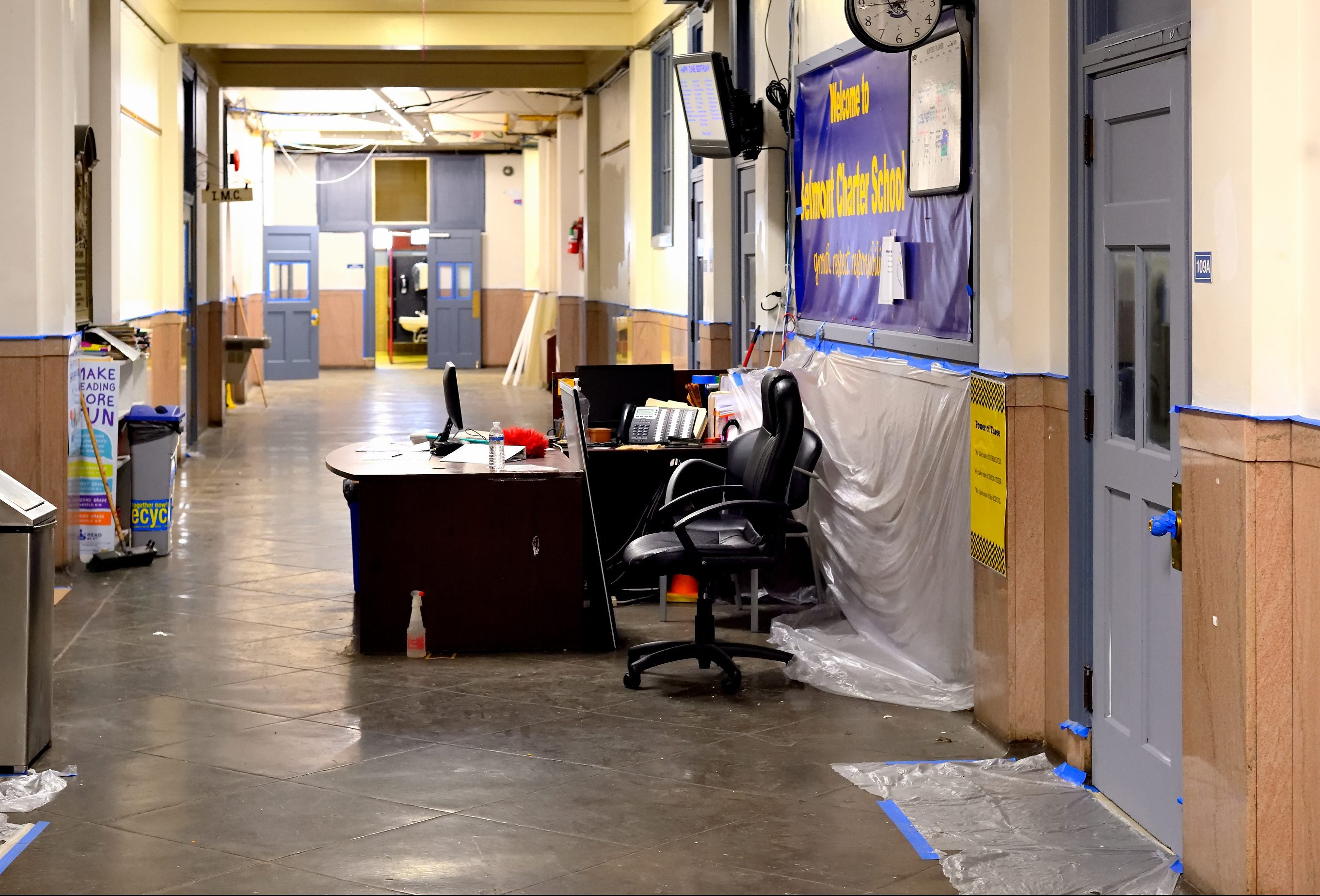
At least one other charter organization has approached the district before about buying a neighborhood school, a district spokesperson confirmed. The district did not say which charter organization made the request or why officials decided to back Belmont’s proposal.
Faustman said her organization first broached the idea of buying Belmont Elementary School about two years ago. She believes the district wanted to wait until the old School Reform Commission (SRC) dissolved before acting on the charter organization’s request.
In late 2017, Mayor Jim Kenney pushed to replace the SRC with a local school board appointed by him. That locally appointed board took power in the summer of 2018.
Months after the board’s installation, reporting from PlanPhilly showed that Councilwoman Jannie Blackwell appeared to be holding up a land sale in her West Philadelphia district on behalf of developer Michael Karp, the founder and board chair of Belmont Charter School.
Kenney assured Blackwell in a letter that he was “aware of the issues that you brought to my attention regarding Michael Karp, and I look forward to continuing to work with you to resolve them.”
One of those issues appears to have been the fate of Belmont Elementary School. Karp wanted his charter school to own the building and Blackwell used her power over the sale of a separate property to ensure Karp’s concerns would be addressed.
Karp denied directing Blackwell to stall the land sale on his behalf, but said at the time that he was disappointed Belmont Charter hadn’t yet been able to buy its building.
“The mayor controls the school district,” Karp told PlanPhilly. “Here’s local control, here’s the fact he appointed all the school board members to do the right thing. But nothing happened!”
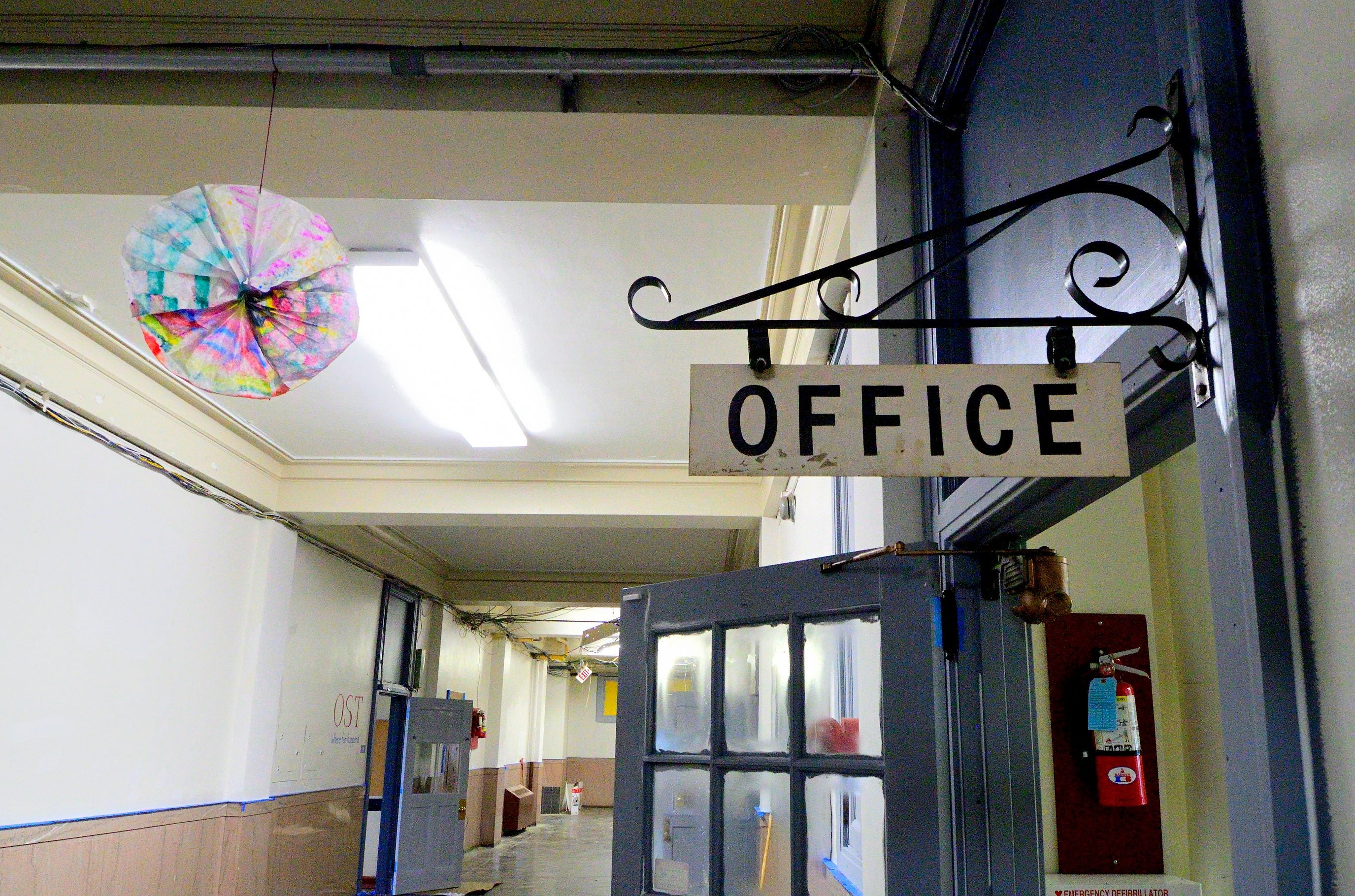
Administrators from Belmont Charter say their urgency is driven by one thing: a desire to make this public school the best possible place to learn.
They say they’re offering over market value for the property and would be freeing the district from $1 million in debt that’s attached to the building.
They’ve also put in a safety net for those who worry the property might drift completely out of public use. The deal gives district officials the right to buy the building back at its purchase price if Belmont ever surrenders its charter.
But Belmont officials expect the district will never have to use that contingency plan.
“We have no intention of leaving this community,” said Faustman. “We’re committed to this community. We’ve been in this community for 17 years. We wanna be here for another 17, if not more.”
WHYY is your source for fact-based, in-depth journalism and information. As a nonprofit organization, we rely on financial support from readers like you. Please give today.



